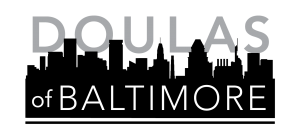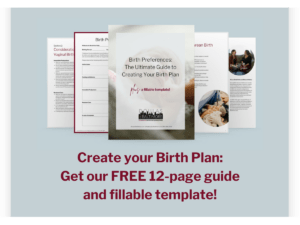Early labor can often leave us with the question of, “When do I head to the hospital?”. Clever reminders like “511” remind us that contractions should be 5 minutes apart and 1 minute long for 1 full hour before you head in. As doulas, we are huge advocates for distraction through early labor. Often, when you focus on distractions you’re able to discern when you can’t ignore labor anymore.
When your pregnancy is healthy and labor is going normally, we love to encourage clients to try to make their contractions go away. True labor won’t stop just because you put your feet up! In addition to staying hydrated, eating nourishing food that feels good to you, and laying down for a bit, here are a few of our favorite ways to enjoy a distraction during early labor.
Schedule an Appointment
An excellent way to relax and distract yourself is to get yourself to a self-care appointment. Book a pedicure, a prenatal massage, or find a salon near you that does blow outs. These appointments are wonderful for distraction but they also help create a flow of oxytocin in your body. Oxytocin is a wonderful pain relief and also calming hormone and it can be stimulated by skin-to-skin contact. Be sure you’re in contact with your birth team and consider having someone else drive (just in case!)
Warm Shower or Bath
The warmth of a shower or bath can ease tension and relax your muscles, helping you stay comfortable as early labor progresses. Water has a calming effect and can provide gentle relief, especially for back pain or cramps. Sitting or standing under a warm shower allows the heat to target your back and abdomen, while a bath can create a more immersive, weightless experience that helps you relax between contractions.
Safety Note: Be sure to keep the water at a comfortable, warm temperature (not hot) and stay hydrated if you’re soaking for a while.
Movement and Gentle Exercise
Moving around can be surprisingly effective in early labor. Gentle stretches, walking, a prenatal yoga video, or using a yoga ball can help release muscle tension, encourage a more optimal baby position, and may even help labor progress. Slow dancing with a partner or swaying your hips in a figure-eight motion can bring comfort and connection, grounding you through each contraction.
Tip: If you have a yoga or birth ball, sit and gently rock your hips, move them in a figure 8 motion, or bounce lightly to ease any pressure in your lower back or hips.
Create a Calming Environment
A soothing environment can make a big difference in how you feel. Dim the lights, play calming music or sounds, and use soft, cozy blankets or a favorite pillow. Try lighting a candle that has a soothing scent to create a spa-like atmosphere if you’re interested in aromatherapy. Choose things that bring you comfort and help you feel safe.
Tip: Make a playlist with a mix of calming and upbeat songs. The calming ones can help you relax, while the upbeat tracks can lift your mood if you’re feeling restless.
Mindful Distractions
Early labor is the perfect time to engage in activities that keep your mind occupied without draining your energy. Simple activities like reading a favorite book, watching a comforting movie, or doing a craft project can keep your focus off contractions while still allowing you to relax. Some people enjoy adult coloring books, knitting, or easy puzzles that bring a sense of calm.
Tip: Make a list of short, enjoyable tasks you can do easily and stop anytime, so you’re prepared with options if labor progresses quickly or you start needing to focus more on your contractions.
These techniques can help you stay comfortable and relaxed at home as labor begins. Remember, there’s no right or wrong way to experience early labor; do what feels best for you. Take things one contraction at a time, stay connected to your body, and know that each step brings you closer to meeting your baby.
Unsure if it’s really labor? Check out our blog “Am I actually in labor?”





